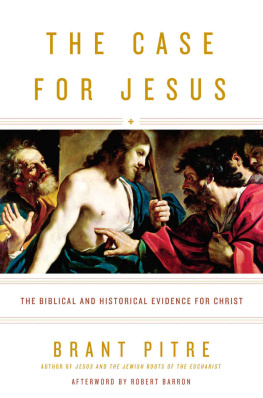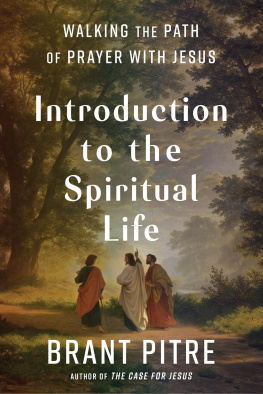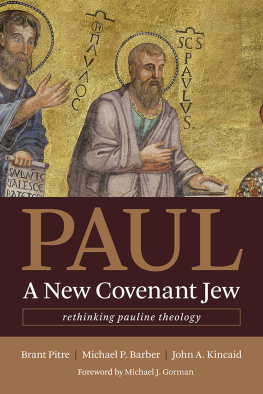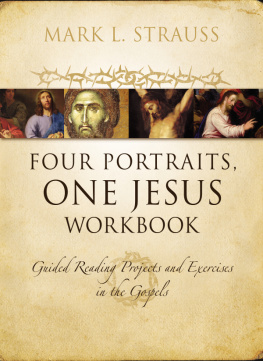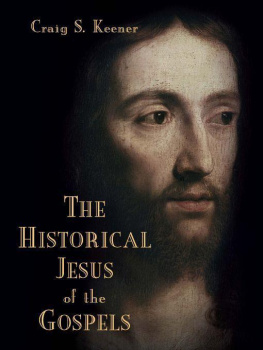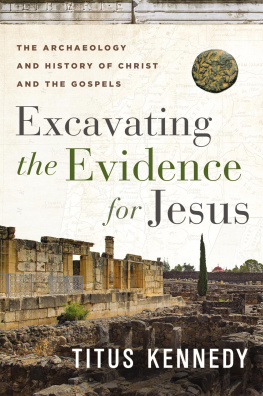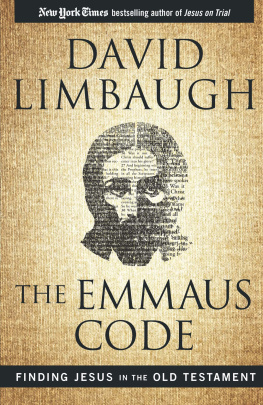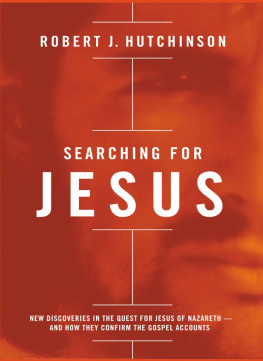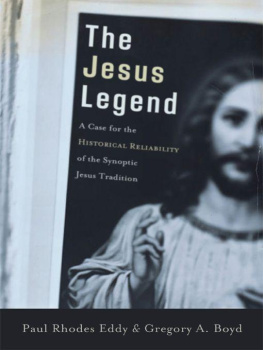PRAISE FOR THE CASE FOR JESUS
Ive lost count of how many times Ive heard critics say the Gospels are late, anonymous, and untrustworthy sources that dont prove Jesus was divine. At last there is a book that meticulously refutes these claims with an engaging discussion of the real Jesus that will benefit both scholars and laymen who read it.
Trent Horn, author of Answering Atheism
Thanks to Dr. Pitres magnificent book, you will now be equipped to make the case for Jesus and the truth of the Gospels to even the most ardent skeptics.
Jennifer Fulwiler, author of Something Other Than God
In The Case for Jesus, Pitre breaks his down research, in typically accessible prose, to bring us a readable and fascinating account of how questioning one accepted academic idea put him on a path of discovery that served to strengthen, not sever, his faith. Readers who loved Jesus and the Jewish Roots of the Eucharist will come away from this book with a similar sense of gratitude for such a faith-affirming presentation, and also a bit of awestruck wonder at how faith and reason can complement each other so well when allowed to. I loved this book!
Elizabeth Scalia, author of Strange Gods: Unmasking the Idols in Everyday Life and Little Sins Mean a Lot
Brant Pitre does a stellar job setting forth a robust and rock-solid case for Jesus. The sensationalistic claims of superskeptics are exposed as a sham as Pitre provides a meticulous presentation of the evidence about the reliability of the Gospels, who Jesus thought he was, and what Jesus means today.
Michael F. Bird, Ridley College, Melbourne, Australia
The Case for Jesus topples the naive skepticism that too often dominates the study of the Gospels, by showing that the evidence for the truth of the Gospels is far stronger than is often assumed. Pitre has a unique talent for putting scholarly work of the highest caliber into an accessible and engaging form. This book should be on the shelf of every homilist, catechist, and Bible study leader.
Mary Healy, Sacred Heart Major Seminary
Brant Pitre, who has already demonstrated his brilliant scholarship in earlier works, explains here in remarkably easy to understand ways why we can trust the Gospels. Behind his effective communication, however, is wide-ranging research and careful rethinking. In fact, this book has given me a number of important new matters to consider myself.
Craig S. Keener, Asbury Theological Seminary
In this important book, one of Americas most brilliant young scholars wrestles with issues of profound importance concerning Jesus and his identity. Pitre, in a lively and direct manner informed by up-to-date scholarship, presents a case for Jesus as the divine Son of God, fully human and fully God. Along the way he bursts some scholarly bubbles and sets a much needed cat among the proverbial pigeons. A delight to read!
Chris Tilling, Kings College, London
Like a room full of stale air, the popular-level conversation about Christian origins could use an open window or two. Thankfully, we now have one in Brant Pitres The Case for Jesus. Personable, accessible, engagingall supported by top-notch scholarship. Read it.
Nicholas Perrin, dean of Wheaton College Graduate School
Copyright 2016 by Brant Pitre
Afterword copyright 2016 by Robert Barron
All rights reserved.
Published in the United States by Image, an imprint of the Crown Publishing Group, a division of Penguin Random House LLC, New York.
www.crownpublishing.com
IMAGE is a registered trademark and the I colophon is a trademark of Penguin Random House LLC.
Nihil Obstat: Rev. Glenn Lecompte, STL, Censor Librorum
Imprimatur: Most Reverend Shelton J. Fabre, Bishop of Houma-Thibodaux
The Nihil Obstat and Imprimatur are official declarations that a book or pamphlet is free of doctrinal or moral error. No implication is contained therein that those who have granted the Nihil Obstat or Imprimatur agree with the content, opinion, or statements expressed.
Library of Congress Cataloging-in-Publication Data is available upon request.
ISBN9780770435486
eBook ISBN9780770435493
Cover artwork: Bridgeman Art Library
v4.1
a
FOR MORGEN THERESA
Joy comes with the morning.
Psalm 30:5
CONTENTS
Who do you say that I am?
Jesus of Nazareth (Mark 8:29)
1
The Quest for Jesus
T his book is about one big question: Did Jesus of Nazareth claim to be God?
The seeds of my interest in who Jesus really claimed to be were first planted back in the early 1990s, when I was an undergraduate at Louisiana State University. I still remember vividly the day I walked into one of my introductory level classes, very excited to begin learning about the Bible. Although I had grown up Catholic and had even spent a fairly good deal of time reading the Scriptures, I had never before had the opportunity to study the Bible in an in-depth way.
At the time, I was especially excited to begin studying the Gospels. For me, the Gospels were the most familiar part of the Bible, and my personal favorite. In particular, I was hoping that I would be able to learn more about Jesus. As a Christian, I had always believed that Jesus was the divine Son of God, fully God and fully man. I worshiped him and tried to the best of my ability (which was often quite lacking) to live according to his teachings. So when it came time in the classroom to turn to Jesus and the Gospels, I was all ears.
Needless to say, I was somewhat taken aback when the professor began by saying:
Forget everything you thought you knew about who wrote the Gospels.
What was that? At the time, I was vigorously trying to take notes, so I couldnt quite digest what the professor had said.
He continued:
Although your English Bibles say The Gospel according to Matthew, Mark, Luke, and John, these titles were actually added much later. In fact, we dont really know who wrote the Gospels. Nowadays, modern scholars agree that the Gospels were originally anonymous.
Got it. Titles added later. Gospels originally anonymous.
Wait a minute! I thought. We dont know who wrote the Gospels? What about Matthew, Mark, Luke, and John? Werent they disciples of Jesus? (As we will see in , I was wrong to think Mark and Luke were disciples.)
At the time, these questions flashed through my mind in a matter of moments. Being a zealous undergraduate intent on getting straight As, I was more focused on writing down the professors words than on processing them. All the same, I do remember being struck by a thought. If what he was saying was truewhich, of course, I never doubted, since I was an ignoramus and he was the professorthen how do we know what Jesus actually did and said? And, in fact, that is exactly what he proceeded to talk about: the so-called quest for the historical Jesus, in which modern scholars search for the truth about what Jesus really did and said, using contemporary tools of historical research.
Despite my initial surprise at the idea that we dont know who wrote the Gospels, the whole notion of the quest for Jesus still fascinated me. After all, Christianity is a historical religion which claims that the God who made the universe actually became a man a real human being who lived in a particular time and in a particular place. As a result, the idea of searching for the historical truth about Jesus made sense to me. So, somewhat blindly, thats what I set out to do.

